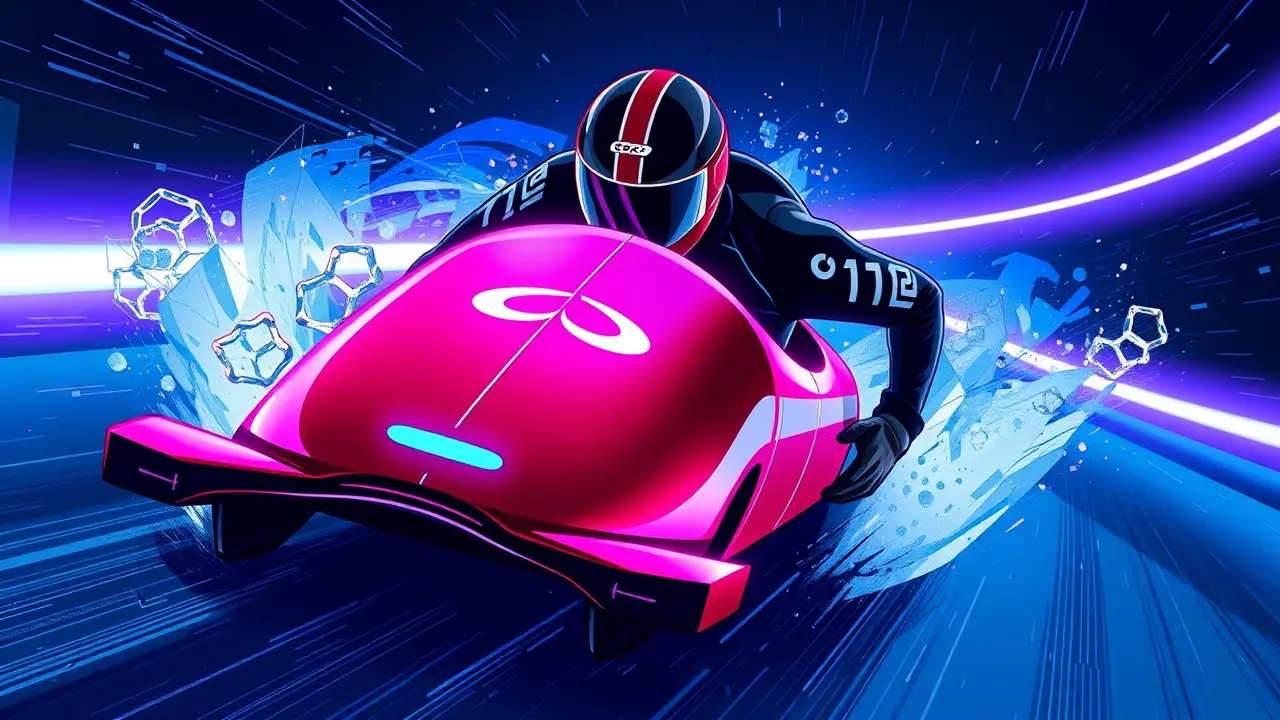GB Winter Olympic medal hope banned for two years
The trajectory of an athlete’s life, so often a narrative of ascension built on sacrifice and dawn-training sessions, can be irrevocably altered by a single moment, a single substance. For Arran Gulliver, a 28-year-old bobsleigh powerhouse from Bewdley in Worcestershire and a genuine medal hope for Great Britain at the 2026 Winter Olympics, that moment has arrived with the crushing finality of a two-year doping ban.The International Testing Agency (ITA) confirmed the suspension, which runs until March 2027, after a test returned an 'adverse' result for ostarine, a selective androgen receptor modulator (SARM) that mimics testosterone, promoting lean muscle growth and enhancing strength—precisely the attributes a bobsleigh athlete pushing a multi-hundred-pound sled craves. What makes this story not just a statistic in the endless war on doping, but a profoundly human drama, is the nuance within the ruling: Gulliver did not challenge the finding, accepting the two-year period of ineligibility, and crucially, he 'established that the anti-doping rule violation was not intentional.' This distinction, while legally significant, does little to cushion the blow to a career now in tatters. Imagine the weight of that admission, the quiet agony of accepting responsibility for an act you did not mean to commit, yet one that carries the ultimate professional consequence.Gulliver is no novice; he is a two-time World Championship medallist in the ferociously competitive four-man bobsleigh and a winner of 12 World Cup medals, his physique and power integral to the British sled’s momentum. His results from March 2, 2025, onwards have been disqualified, a bureaucratic erasure of sweat and triumph.The British Bobsleigh & Skeleton Association, stating it is 'committed to the eradication of doping' and 'fully supports' the ITA, noted Gulliver’s decision to accept the verdict and 'take full responsibility for his actions and the consequences that have arisen as a result. ' This is where the narrative transcends simple condemnation.The world of high-performance sport is a minefield of supplements, recovery aids, and complex nutritional regimes. The spectre of contamination, of a banned substance lurking in a seemingly innocuous product, is a persistent fear that haunts every elite athlete.Was this the case for Gulliver? The ITA’s acknowledgment of non-intentionality suggests a scenario far more tragic than deliberate cheating—a potential accident, a moment of misplaced trust, a catastrophic oversight. It brings to mind the ancient Greek concept of *hamartia*, a tragic flaw or error in judgment that leads to a hero's downfall, not out of malice, but fallibility.Gulliver’s story now joins a sombre archive of sporting tragedies: athletes like the American sprinter Tyson Gay, who faced a reduction in his ban after proving the source of his positive test was a product he trusted, or the countless others whose careers were truncated by a substance they often didn't know they were ingesting. Ostarine itself has been at the center of numerous controversies, from Masters athletes to UFC fighters, its presence sometimes attributed to tainted supplements, creating a nightmare of due diligence for competitors who must essentially vet every molecule that enters their body.The philosophical question this case forces us to confront is about the very nature of fault in a system of such immense pressure and complexity. Is the athlete always solely responsible, an absolute guardian of their own biology, or does the system share some burden in providing clearer pathways and guarantees? Gulliver retains the right to appeal through the World Anti-Doping Agency (WADA) and UK Anti-Doping, a legal labyrinth that offers a sliver of hope, but the psychological toll is likely already immense.To have dedicated one’s life to the pursuit of a singular, icy dream at Cortina d’Ampezzo in 2026, only to have it vanish not in a crash on the track, but in the stark language of a disciplinary report, is a uniquely devastating form of defeat. It serves as a stark reminder that in the pursuit of physical excellence, the margin for error is vanishingly small, and the price of a mistake, intentional or not, is a lifetime of what-ifs. The track ahead for Arran Gulliver is no longer the familiar chute of ice, but the long, hard road of redemption, a test not of strength, but of spirit.
It’s quiet here...Start the conversation by leaving the first comment.
© 2025 Outpoll Service LTD. All rights reserved.
